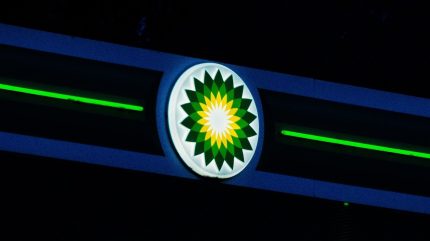BP sees global oil demand peaking next year

Energy giant BP has said that global oil demand will peak as early as 2025, with renewable energy sources growing rapidly as the desire for hydrocarbons subsidies.
The company, which has recently pondered a move away from its own renewable ventures, estimated that the peak would start to bring an end to rising global carbon emissions by the middle of the 2020s.
According to the company’s annual Energy Outlook study, which assesses the global energy system to 2050, oil use will rise by two million barrels a day (mbbl/d) to peak in 2025, hitting 102mbbl/d.
The company has put forward two scenarios: the world’s current energy transition trajectory and the road to meeting net zero targets by 2050.
In both cases, carbon emissions will reach a peak in the middle of the decade as both solar and wind projects see enormous growth around the world, with set-up and operational costs falling.
However, in terms of natural gas, in the report’s net-zero scenario its usage would peak around the middle of this decade before halving by 2050 compared with current levels.
Access the most comprehensive Company Profiles
on the market, powered by GlobalData. Save hours of research. Gain competitive edge.

Company Profile – free
sample
Your download email will arrive shortly
We are confident about the
unique
quality of our Company Profiles. However, we want you to make the most
beneficial
decision for your business, so we offer a free sample that you can download by
submitting the below form
By GlobalData
The current trajectory model estimates that gas demand will continue to grow, expanding by around a fifth by 2050.
All this comes as bp CEO Murray Auchincloss recently initiated a hiring freeze and suspended offshore wind projects, according to sources at the company, as he places focus on oil and gas to boost revenues.
He is reportedly looking to halt large, fixed capital investments in offshore wind as they are not expected to deliver returns for years.
Its earnings for the first quarter of 2024 were $2.7bn (£2.1bn), down 45% from the same period in 2023, due to lower energy prices and a US refinery outage, despite an increase in oil and gas production.
BP’s adjusted earnings before interest, taxes, depreciation and amortisation were $10.3bn, while underlying replacement cost profit stood at $2.72bn.
The company’s upstream production grew by 2.1% compared with the previous year, with the new Azeri Central East platform launched in the Caspian Sea.
link

